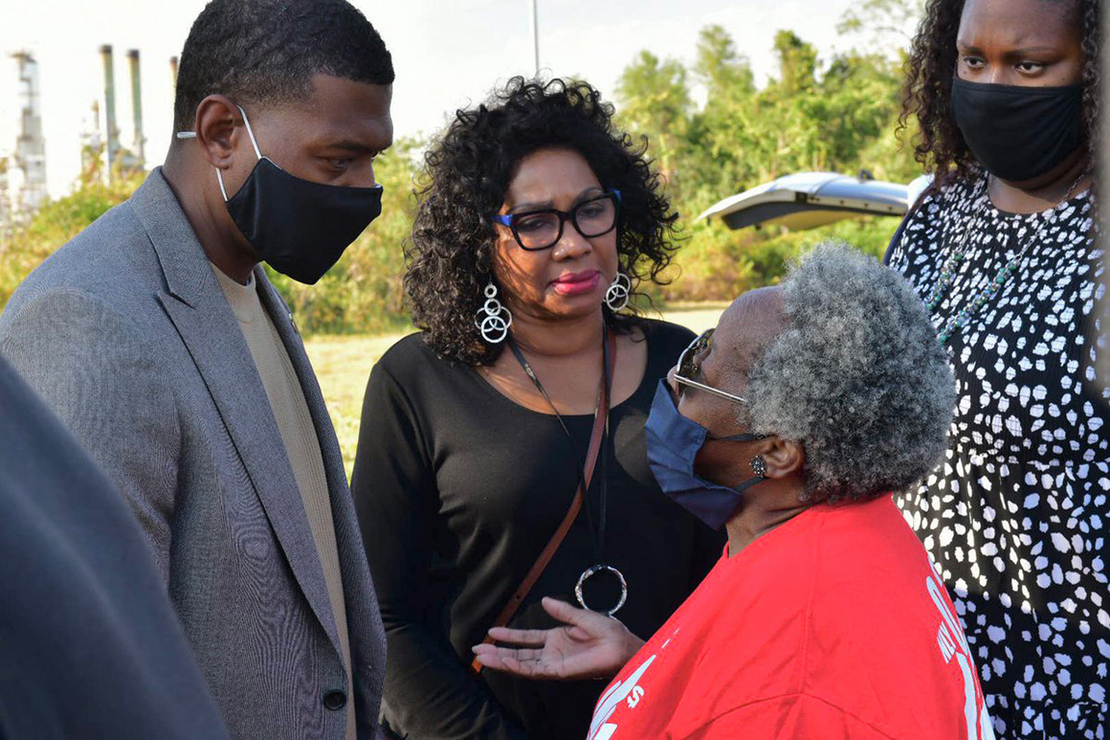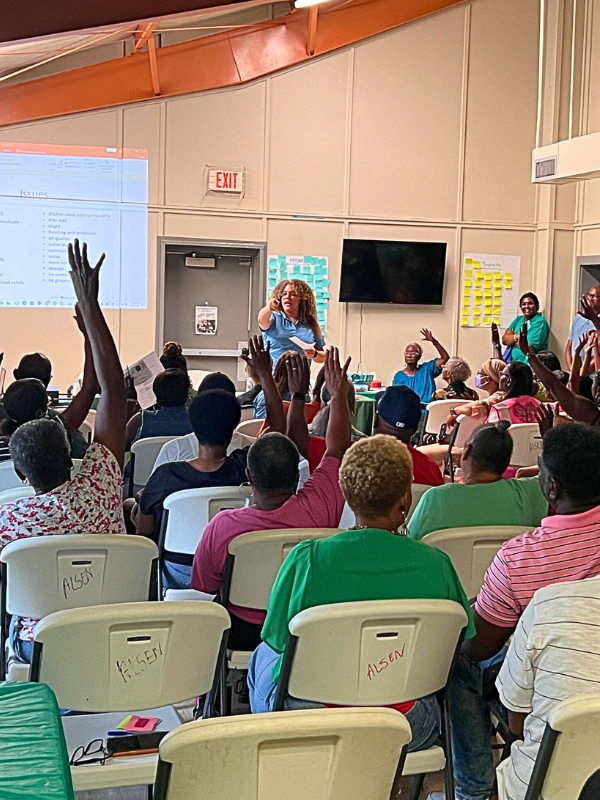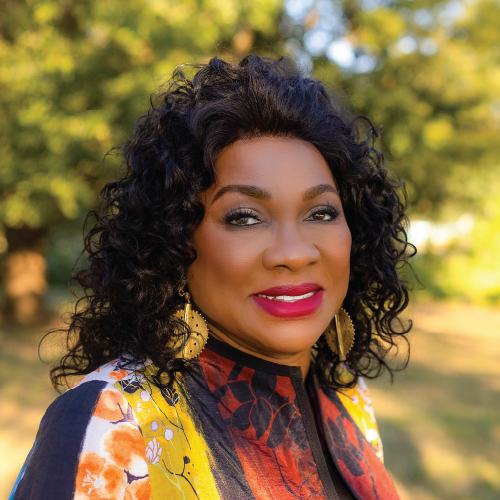About Us
The Deep South Center for Environmental Justice (DSCEJ) was founded by Dr. Beverly Wright in 1992 in collaboration with community environmental groups and other universities within the Southern region to advance environmental justice. Since this time, the Center has become a powerful resource for environmental justice research, education, as well as health and safety training for environmental careers.




The DSCEJ promotes the rights of all people to be free from environmental harm, particularly communities of color along the Mississippi River Chemical Corridor and the broader Gulf Coast Region.
Formerly affiliated with Xavier University and Dillard University, the Center is now a fully independent, nonprofit entity dedicated to addressing the unique challenges of climate change facing communities of color and poor communities in the South. It maintains collaborative relationships with HBCUs in Louisiana and nationwide.
Through numerous grants, the DSCEJ supports innovative projects in research, education, capacity-building, public advocacy, and training for communities, workers, and students to achieve environmental justice.
The DSCEJ provides opportunities for communities, decision-makers, and scientific researchers to collaborate on programs and projects that promote the rights of all people to be free from environmental harm as it impacts health, jobs, housing, education, and general quality of life.
We are shaping the future for climate-vulnerable communities to thrive in a healthy and just environment.

The Birth of “Communiversity”
From the time of its founding, the DSCEJ set out to change the unequal relationship between university researchers and communities that hindered problem-solving.
This was a one-sided relationship in terms of who controlled the dynamics of the interaction, who was perceived as knowledgeable, and who benefited. Dr. Beverly Wright developed the “Communiversity Model” to instill equitable partnerships between communities and universities.
The Center applies the Communiversity Model in preparing residents of communities to use their voice on critical issues, which begins with listening to community concerns first and then providing research, education and training on identified issues.

The essence of the Communiversity Model is an acknowledgment that for effective research and policy-making, valuable community life experiences regarding environmental insult must be integrated with the theoretical knowledge of academicians. Either group alone is less able to accomplish the goal of achieving environmental sustainability and equity, but the coming together of the two groups in a mutually respectful and beneficial relationship encourages significant strides toward achieving solutions.
The Communiversity Model is comprised of guidelines and processes for ensuring community members have an equal voice with university researchers in developing, resourcing, and implementing projects, and can benefit from the partnership. This model emphasizes collaborative management of the partnership between a community and a university. It also fosters bilateral understanding and mutual respect between community residents and academicians.

A Message from our Founder and Executive Director

As I reflect on three decades of fighting for environmental justice, a sense of gratification washes over me when I consider the incredible growth we have experienced at the Deep South Center for Environmental Justice.
Recent years have taken us on a transformative journey, filled with both obstacles and victories. This journey has been made possible by strong collaborations with communities, government agencies, philanthropic entities, and academia.
With the unwavering support of our loyal supporters, partners, and friends, we have successfully expanded our outreach programs and forged new, meaningful partnerships. We have faced challenges with an innovative mindset, pushing boundaries and seeking creative solutions.
As we look ahead to the future, we are continuously inspired by our rich history and the groundwork we have laid for a more just environment.
Dr. Beverly Wright
Dr. Beverly Wright
